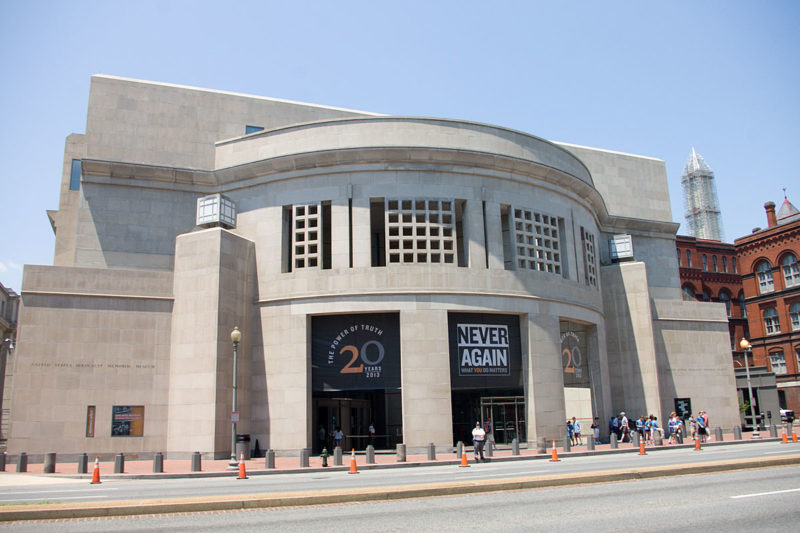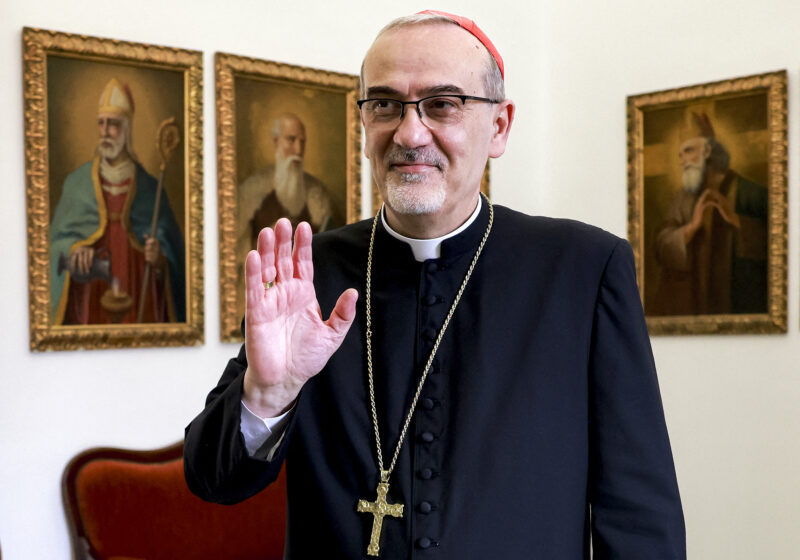Keir Starmer’s top diplomat in Washington starts his job with high-stakes challenges
Peter Mandelson, the new U.K. ambassador to the U.S., is leading Britain’s latest charm offensive towards Trump

Carl Court/Getty Images
British Prime Minister Keir Starmer (R) talks with Britain's ambassador to the United States Peter Mandelson during a welcome reception at the ambassador's residence on February 26, 2025 in Washington, DC.
There’s a scene in the 2003 British romantic comedy “Love Actually” where the British prime minister, played by Hugh Grant, takes a rhetorical pickaxe to the “special relationship” between the U.S. and U.K. while standing next to the American president. “I fear this has become a bad relationship,” Grant’s character states, as the president’s smug grin disappears from his face.
That confrontational tone could not be further from the approach taken by Prime Minister Keir Starmer during his Oval Office meeting with President Donald Trump on Thursday, even though Starmer’s Labour Party and Trump’s Republican Party are ideological opposites.
“Our countries have been bound together for a very long time now, the closest alliance, I think, of any two countries when it comes to prosperity and security,” Starmer said.
To manage that alliance, Starmer named confidante Peter Mandelson as the new U.K. ambassador to Washington and tasked him with the relatively straightforward goal of keeping the Brits on the good side of the mercurial Trump, who has a habit of clashing even with close allies. The night before Starmer met Trump, the British prime minister praised the “buzz” around Washington with Mandelson in town, Politico reported.
Mandelson, 71, is a savvy political operator who earned the nickname “Prince of Darkness” in the British press for his relentless spin tactics in the 1980s and 1990s. A lifelong Labour activist and official, he replaced Karen Pierce, a career British diplomat who took office at the end of Trump’s first term and has bipartisan respect in Washington.
“Downing Street believes the most essential thing to know about the incoming president is that he is hyper-transactional,” British columnist Andrew Rawnsley argued in The Guardian in December. “Though he long ago acquired his reputation as a master of the darker arts of politics, [Mandelson] can turn on the charm when he wants to.”
Indeed, Mandelson began his service on a charm offensive — and something of an apology tour. He had in the past described Trump as “a danger to the world” and a “bully,” but he went on Fox News after being named ambassador to walk back the claim. He said Trump had earned “fresh respect” as he returned to office with his “dynamism and energy.”
Mandelson grew up in a Labour household, the grandson of Herbert Morrison, who was a well-known Labour official in the 1930s and 1940s. While that side of his family was not Jewish, Mandelson’s father was — and although he did not raise Mandelson within the Jewish faith, Israel was in his “political DNA, my family’s DNA,” he said at an Independence Day event at the Israeli Embassy in London in 2024.
In 2020, Starmer took over the leadership of the Labour Party from Jeremy Corbyn, the vehemently anti-Israel leader who was shortly thereafter suspended from the party when he claimed that reports of antisemitism within Labour were “dramatically overstated.” Mandelson has worked to reaffirm the Labour Party’s historical record of support for Israel.
“I had an unwavering belief in Israel’s right to exist, as so many of us, the overwhelming majority, do in the Labour Party,” he said in May 2024.
Speaking at the Israeli Embassy last year, Mandelson described when he had been forced to reckon with anti-Israel sentiment within the party decades earlier.
“In the 1980s I became increasingly aware of the need to defend Labour’s support for Israel from ultra left militants both inside the Labour party and outside who had climbed onto the ‘Zionism is racism’ bandwagon that had initially been created by the United Nations General Assembly,” Mandelson said.
In the address, he mentioned a trip he took to Israel last year with fellow parliamentarians, who visited Kibbutz Kfar Aza a few months after the Oct. 7 Hamas terror attacks.
“I wish those who have forgotten what happened on Oct. 7 and seem to only think about what’s happened since October the 8th could have gone to that scene as we did,” he said. “I felt deeply resolved not to leave Israel’s side at that time or any time in the future, whatever disagreements I or others have with the particular policies of a particular government.”
Given Mandelson’s pro-Israel bona fides, the Middle East may prove an area of relative agreement between Starmer and the Trump administration. More difficult for London will be the issue of Ukraine, as Starmer seeks to convince Trump that the U.K. is paying its fair share to NATO. Starmer announced before departing for Washington that the U.K. will increase defense spending to 2.5% of its GDP by 2027, a move meant to convince Trump that Washington’s European allies are stepping up to support Ukraine financially — and that the U.S. should not abandon its own support of Kyiv.
Mandelson, a former European trade commissioner and British trade secretary, arrived in Washington representing a British government also gravely concerned about a global trade war, with possible U.S. tariffs sure to have a big impact on the U.K.
Mandelson has acknowledged being “concerned” about the prospect of tariffs, and said the U.K. won’t agree with every Trump policy. “But we have to respect and understand what drives him, what his mandate is to do, and how his allies need to adjust sometimes,” he told The Guardian earlier this month.
On the trade front, definitive progress was made: Trump said he’s hopeful for a “great trade deal” with the British. Starmer also delivered Trump an invitation to a state dinner from King Charles III.
On the issue of Ukraine, though, the two leaders remained at an impasse, as a reporter pointed out that “one of you completely trusts President [Vladimir] Putin and one of you doesn’t trust him an inch.”
Trump insisted that there might soon be a peace deal between Ukraine and Russia. Starmer diplomatically urged him to reconsider his position. “History must be on the side of the peacemaker, not the invader,” Starmer said.
Even as they disagreed, Trump and Starmer warmly discussed their countries’ views on the hot-button issues — and that might be the best Mandelson can hope for during his tenure in Washington, too.
“Given the relationship that we have, we can always make our views known,” Mandelson explained in a February interview. “Best, by the way, directly and privately.”












































































